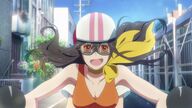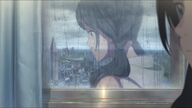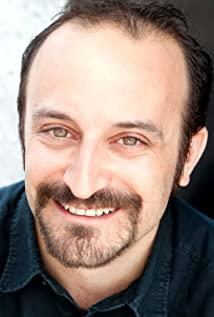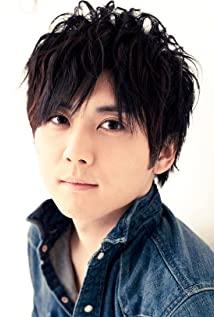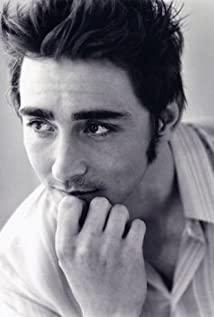In view of the fact that in daily study and life, individuals should exercise the ability to think independently, and not blindly accept the opinions of others through books, the Internet, etc., so I wrote this short review and my own thinking (this article is only a personal opinion, not Do not look at it).
When watching "Weathering With You", I paid more attention to the role of Keisuke Suga than the hero Hodaka (replaced with "male protagonist" in the subsequent text). At the beginning of the movie, the onboard broadcast informs the passengers to leave the deck for evacuation, and the male protagonist "killed" on the deck, and then almost in distress, but Keisuke appeared in time to save the male protagonist. This shows that it is very likely that Keisuke has noticed the male protagonist after he boarded the boat, otherwise it is impossible to run up to the deck to rescue the male protagonist in a short time (compared to the previous assumption, it is possible sexual inference). Later, from the conversations between Keisuke's niece Natsumi and others, it can be found that Keisuke's experience when he was young is very similar to that of the male lead. Human actions can be attributed to motives, by some we can see, and a variety of others, under the influence of our Character comes out of sensibility) or cognition (intellectual thought comes out of reason), we act. From the age of the male protagonist at the time, and a little determination revealed in his eyes, as Keisuke who has taken this step before, he will undoubtedly feel that the male protagonist is very familiar, much like himself when he was young. So it is more understandable for him to give the male protagonist a business card when he disembarks. He hopes to help the male protagonist (aside from the plot needs, only from his inner perspective), just like when he was young, he also hoped that someone could help him.
The main storyline unfolds. Everything in the big city of Tokyo is dazzling for the male protagonist. He has achieved his own small goal-to stay away from the familiar places and people, cut off the connection with the past and start a new life. As for why the male protagonist left his hometown to come to Tokyo, there is no detailed introduction in the whole film, but some reasons are vaguely revealed from the male protagonist's mouth. But from the past memories of the male protagonist in the film, riding a bicycle to chase the sun on the island, it can be vaguely seen (purely personal inference) that the male protagonist already had a goal in his heart at that time, and his goal was urgent and very important to his life. of. But at the same time, its goal is not clear and clear. I don't think the male protagonist was very clear at the time about how he would change if he caught up with the sun and bathed in the sun. Starting from this goal, the male protagonist finally decided to leave his hometown for Tokyo. It is not enough to have ideals. First of all, people need to survive. Under the pressure of life, the male protagonist finally defected to the residence where Keisuke was located in the business card, and began to live together with Keisuke and Natsumi. Keisuke helped the male protagonist to solve the problem of housing and food, but he also let him take on the work (including investigating the recent urban legend "Haruna", writing articles, taking care of Keisuke's daily life, etc.). Xia Mei is more similar to the male protagonist's sister, taking care of the male protagonist with the unique tolerance of women, but not blindly indulging. The male protagonist found his new position in such a life and experienced his first growth.
The male protagonist met the female protagonist (in this article, Yang Cai is uniformly replaced by "female protagonist"), first of all, the female protagonist took the initiative to chat up the male protagonist. The male protagonist who was hungry and cold in Tokyo for the first time only had enough money to buy a hot drink from McDonald's. After observing for several days in a row, the female protagonist gave the male protagonist a Big Mac. The heroine undoubtedly sees herself from the hero just like Keisuke, but she is also different from Keisuke. Afterwards, he explained that the heroine and the younger brother lived together. Without adult support, it was undoubtedly very difficult for the two siblings to make a living. Maybe the heroine has also experienced a period when the money in her hand was "only enough to buy a cup of hot drink a day". Starting from empathy, she extended herself to others. The heroine was sympathetic to the male protagonist at first. After the "male protagonist grabbing the female protagonist" story (but I will not go into details), the male protagonist realized the ability of the female protagonist as a "clear girl". Above the torii gate on the top floor of an abandoned building in the Yoyogi area, the sun appeared in the rainy sky following the prayers of the hostess. Its light is growing, breaking through the clouds and illuminating all things. Bathed in the sun, looking at the incredible sight, the vague goal in the male protagonist's heart gradually became concrete.
The male protagonist and the female protagonist gradually got to know each other and gradually fell in love with each other. The vague goals in the male protagonist's heart and the love for the female protagonist gradually overlapped. The plot continues to advance, and the ability of "Sunny Girl" makes the heroine and the sky become one, and the heroine can use the ability to temporarily clear the small area. But after overusing her abilities, and in order to make the weather in the city return to normal, the heroine finally decided to sacrifice herself and return to the sky (during the period, there were also dialogues and discussions between various characters, explaining that Keisuke went to Tokyo alone to meet and lose love when he was young His wife, whose daughter suffers from asthma, is raised by his wife and mother. As the continuous rainy days can easily cause asthma disease, Keisuke cannot often see his daughter outside, etc.).
Due to the existence of the heroine "Harumu", Tokyo does not see the light of day under the cover of rain every day. When it comes to restoring the city to its original state by sacrificing one heroine, Keisuke voted in favor. After entering the society from school, we gradually grew up and became adults. Changes in the external environment must also have an impact on the internal. While smoothing the edges and corners, we also adapted to the various rules of society and became a member of the society. Therefore, I am in this kind of change (it may be more appropriate to say that it has gradually become), and I can undoubtedly bring in Keisuke more than the male protagonist who is a teenager. So I pay more attention to him, because he may also be a microcosm and embodiment of my growth in the future.
The plot gradually climaxes, the male protagonist "long-distance raid" came to the torii of the abandoned building, and wanted to go through the torii to save the heroine (the previous plot introduced the plot of the heroine who passed through the torii to gain power), followed by The police (the plot of the male protagonist who is suspected of holding a gun, which is not described in this article) and Keisuke surrounded the male protagonist. Keisuke wanted to bring the male protagonist back, because he thought rationally. The female protagonist disappeared but the male protagonist's life still had to go on. From an ordinary adult's point of view, he believed that with time, the male protagonist's pain would go on. Healing is possible because life goes on no matter what happens. But the male protagonist does not agree. He is a young man with strong blood and energy. Time has not smoothed his edges and corners. He believes that there are things that cannot be lost in life, that his goals are also the reason for his existence, and that his efforts can bring Come to things to change instead of just accepting the facts. During the confrontation, he picked up the gun that he had thrown there before (see the movie for the details of the gun), and he first aimed at Keisuke, then at the policeman with the same gun, and then at Keisuke. The male protagonist also sees himself in Keisuke, maybe Keisuke is what the male protagonist will look like many years later. So the male protagonist aimed at him because he was unwilling to arrange his life and wanted to surpass him. He doesn't want to be held back because some things only happen in that particular period. It happens (in terms of appearance) when driven by a blinding impulse, so to speak. At this time, Keisuke saw another possibility from the male protagonist, the passion that he had gradually lost. The male protagonist's pursuit of the female protagonist is undoubtedly the projection of his pursuit of his beloved wife at that time. He found that in his heart, he actually didn't want the male lead to stop, and hoped that the male lead could successfully rescue the disappearing female lead. It must be said that there was no such unfulfilled dream that he also wanted to bring his deceased wife back to life. So the scene in the whole movie that moved me happened, Keisuke rushed to the police to help the hero escape from the police. He was freed from reason and devoted himself to sensibility. The dream (goal) that he could not achieve by himself could be realized in another sense through the success of the male protagonist. Don't pay attention to the future development of things that you imagine under your intellectual cognition, only focus on the present moment. With the second growth of the male protagonist, Keisuke also ushered in his new growth. The male protagonist climbed up the top floor and passed through the torii gate, and successfully rescued the female protagonist. Three years after the end of the film, on the familiar slope, the hero and heroine meet again. The goal of the male protagonist finally materialized-no matter what happens in the future, he has to live with the female protagonist, and the male protagonist has grown up for the third time.
The process by which the characters discover themselves in the film can be seen in Schopenhauer's essay "On the Foundations of Morality". An individual's sympathy for another's life, which Schopenhauer considered the foundation of morality. Doing not from one's own interests but from the interests of others is the highest form of virtuous behavior. We find ourselves in others, because the "will" of the thing-in-itself beyond the individual is constant and common to all, without individual distinction, and egoism is only a reality limited to appearances (representing only the individual's A simple understanding of Schopenhauer's point of view).
The growth of boys and girls is a classic theme of Japanese anime. But we can't be teenagers all the time, we have to grow up. What is the meaning of life? In "The Shackles of Human Nature", Somerset Maugham borrowed the words of the people in the play to say that it was "a broken Persian rug". Other celebrities also have their own judgments, and everyone has their own answers. Compared with the long time that the world existed before each person was born, and the long time that the world existed after each person died, the life of an individual in the gap is actually quite short. But it doesn't stop thinking just because it's short-lived. The exploration of the meaning of life is also an exploration of the reason for existence, or from another perspective, an exploration of the self. The process by which we discover the world outwards is also the process by which we discover ourselves inwardly. Perhaps as the saying in the Temple of Delphi ("Know yourself"), from ancient Greece to modern times, since Socrates, the discovery of self by man has been a problem for philosophers to think about, and it also runs through the individual life always. Our growth is accompanied by a gradual awareness of ourselves, and our goals are also a reflection of our inner desire to discover ourselves. Encounters with others, reading and developing hobbies, long-distance travel... We turn to the outside in order to discover the inside of ourselves. I don't know what my future life will be like. I only hope that I can hold the light of reason and continue to explore on the road of life, pour trouver soi-même!
View more about Weathering with You reviews



